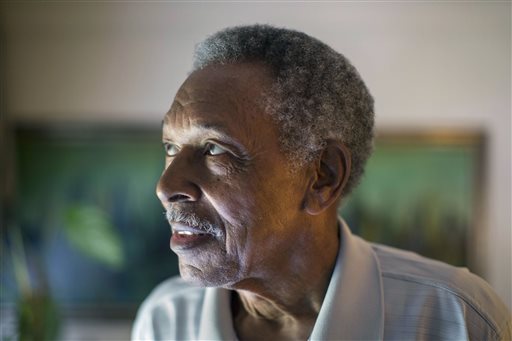CHICAGO (AP) — Otis McDonald, the lead plaintiff in a lawsuit that prompted the U.S. Supreme Court decision that forced Chicago to abandon its 28-year ban on handguns, has died at the age of 80, a family spokesman said Sunday.
Fred Jones said his uncle died on Friday while in hospice care after a long battle with cancer.
McDonald, an unassuming retired maintenance engineer, became a hero to the pro-gun movement, in large part because of his life story and the simple but eloquent way he expressed his desire to have a handgun to protect himself and his family from the gun-toting drug dealers who set up shop just outside his front door and the burglars who broke into his home.
Another of the four plaintiffs in the lawsuit that resulted in the court’s 2010 decision, Adam Orlov, said that while he does not know how important having McDonald as the lead plaintiff was from a “legal standpoint… he was very important from a human angle, a very compelling likable person with a very real, very common American story to tell — a veteran, a family man, who is dealing with very real issues of urban decay and crime and trying to raise his family.”
When the case was making its way to the Supreme Court, McDonald’s story became a huge part of the narrative: a teenager who came to Chicago from Louisiana as part of the Great Migration who worked his way up from janitor to maintenance engineer, saved his money and with his wife, bought a house on Chicago’s South Side and raised their family.
Then, as he grew older, the once-quiet neighborhood deteriorated and from inside his house he could hear the sound of gunfire and shattering liquor bottles and look out his window to the sight of drunken fights and busy drug dealers. He came home at least three times to a burglarized house and was confronted by a man who threatened to kill him when he called police to report gunfire.
“I just got the feeling that I’m on my own,” McDonald told The Associated Press in 2010 as he waited for the Supreme Court decision. “The fact is that so many people my age have worked hard all their life, getting a nice place to live in… and having one (a handgun) would make us feel a lot more comfortable.”
After the court decision, McDonald remained active in the gun rights movement in Illinois, speaking out in favor, for example, of the state allowing people to carry concealed weapons in public before such a law was passed last year after a federal court ruling forced the state to enact concealed carry legislation. Illinois was the last of the 50 states to allow concealed carry.
“We could not have gotten the kind of (state) carry law we got without McDonald versus Chicago,” said Valinda Rowe, a spokeswoman for IllinoisCarry, which favors concealed carry. “That case was pivotal.”
Jones said McDonald is survived by his wife, Laura, and four grown children. He said funeral arrangements are pending.

COMMENTS
Please let us know if you're having issues with commenting.